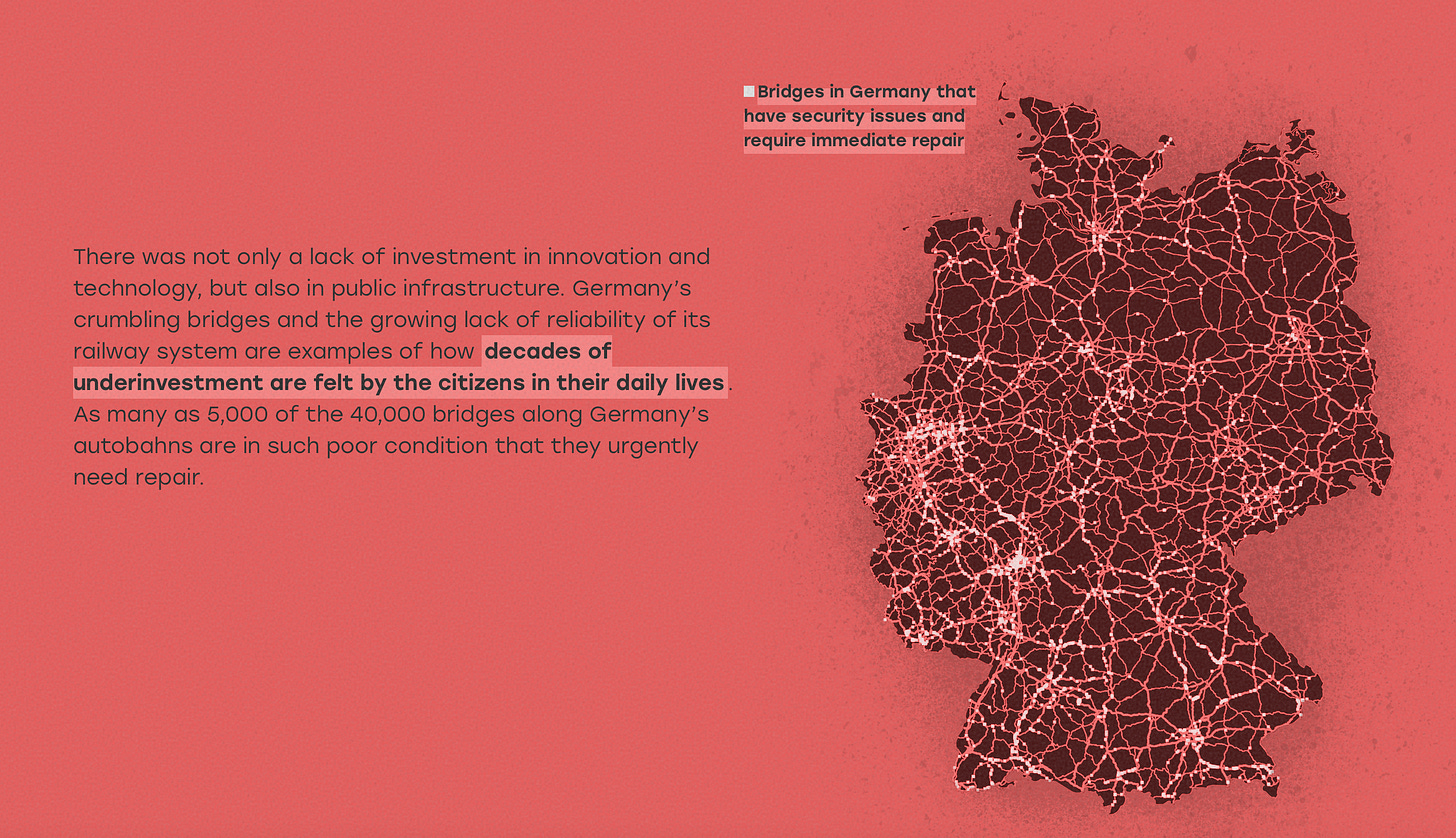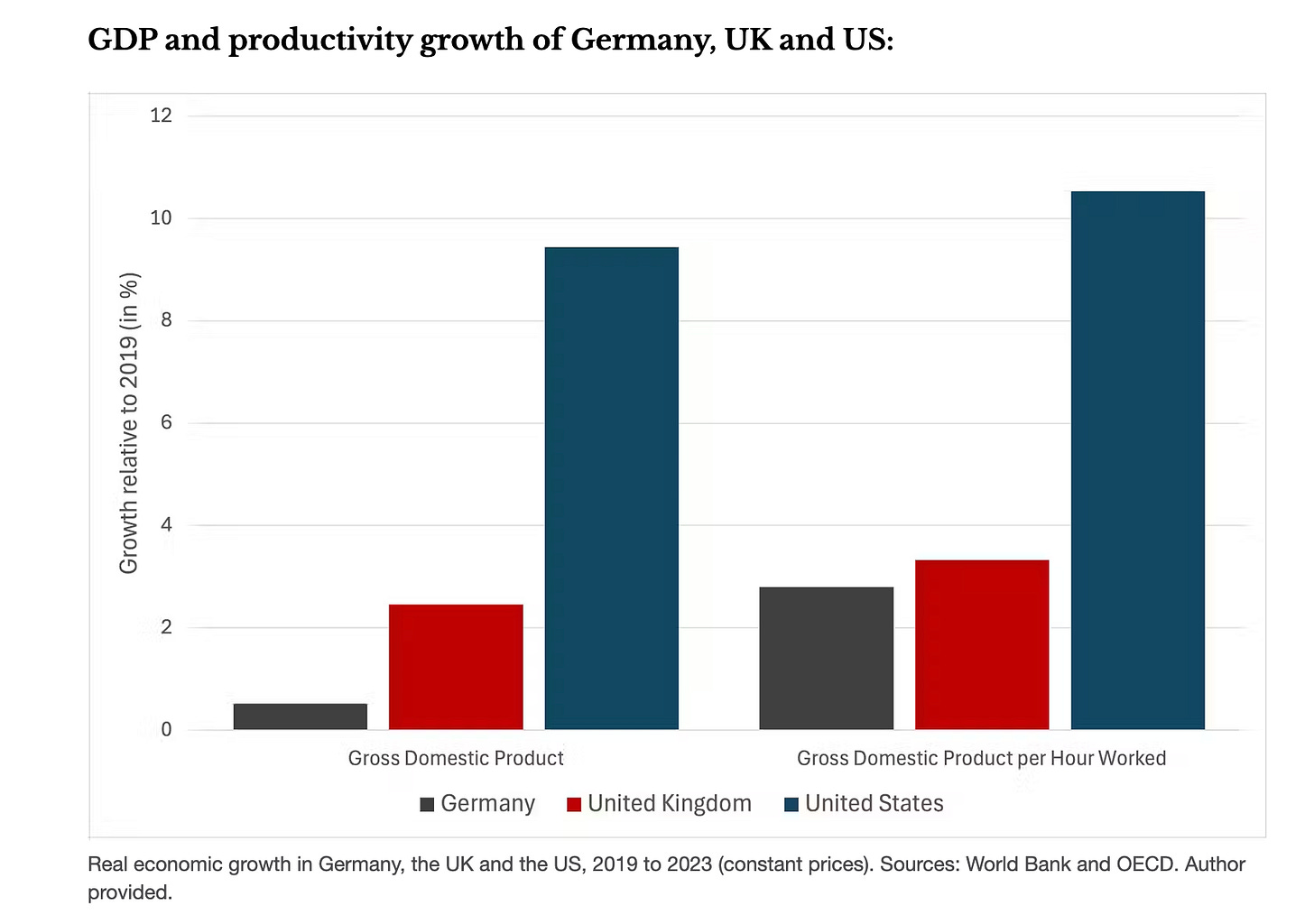“Equity-Efficiency Tradeoff” - Social Benefits vs Investment
A Balanced Budget vs A Balanced Economy
(in English)
A reader recently asked me what I think about his presumption in terms of Germany's stagnating economy: He guesses that comparable countries that are growing do not provide as many social benefits as Germany. And they might be therefore in a better position to invest more, which enables more growth.
Yes, it's theoretically possible for an economy to experience slower growth when substantial resources are directed toward social support programs rather than economic investments.
This theory, sometimes called the "equity-efficiency tradeoff," suggests several mechanisms through which this might occur:
Resource allocation: Government spending on social programs may divert capital away from productive investments in infrastructure, research, and business development.
Taxation effects: Higher tax rates needed to fund social programs could potentially reduce incentives for entrepreneurship and investment.
Labor market dynamics: Generous social safety nets might theoretically reduce labor force participation or labor mobility.

However, this relationship is far more complex than a simple tradeoff:
Many countries with extensive social safety nets (like Nordic nations) maintain strong economic performance while providing robust social support. Their experiences suggest that well-designed social programs can actually enhance growth by supporting human capital development, reducing economic insecurity, and maintaining consumer spending during downturns.
Additionally, economic stagnation often stems from multiple factors beyond social spending, including demographic changes, technological disruption, monetary policy, trade relationships etc.

The empirical evidence doesn't show a straightforward correlation between social spending and economic performance.
I would argue that targeted social investments (education, healthcare, childcare) can boost long-term growth by developing human capital and enabling broader participation in the economy.

Germany’s relatively high social benefits provide stability, productivity, and long-term sustainability that might allow for a different type of economic resilience.
The relationship between social benefits and growth is complex, and each country’s situation is unique, depending on its stage of development, industrial base, and fiscal strategies.




